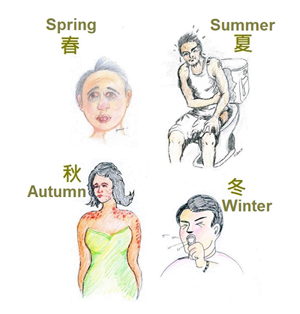Nine Body Constitutions in Chinese Medicine
- Gender: men and women have some physiological differences, in TCM terms, men are more rely on qi (vital energy), while women are more rely on blood.
- Age: our body’s structures, functions and metabolism change as we age.
- Mental state: mental state influences the activities of internal organs which can alert the body constitution.
- Living environment: different geographic regions lead to specific climates, products, diet and living habits, and these factors become the primary concerns in TCM consultations.
1. Neutral type 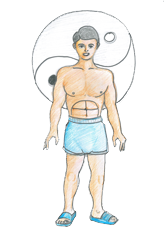
2. Qi deficient type 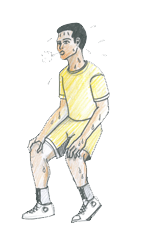
3. Yang deficient type 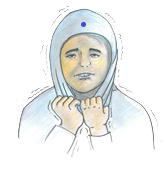
Individuals tend to have flabby muscles, and are quiet and introvert in personality. They often complain about cold hands and feet, cold feeling in stomach, sensitive to low temperatures or noises, sleepiness, discomfort after eating cold foods, and a pale and bulky tongue. They often feel uncomfortable in windy, cold and humid environments. They are susceptible to health problems such as puffiness, diarrhea and excess throat secretions.
4. Yin deficient type 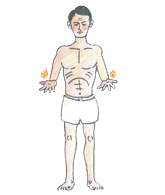
Individuals usually have a thin physique, and are outgoing and impatient in personality. They like to complain about warm palms and soles, mouth dryness, dry nose, preference for cold drinks, dry stools or constipation. They often feel uncomfortable in hot and dry environments. They are susceptible to cough, fatigue, seminal emission, insomnia, and some chronic conditions.
5. Phlegm & dampness type 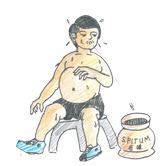
Individuals are usually overweight and have tummy, they have a mild temper, steady and patient personalities. They often present with oily face, sticky or sweet taste in the mouth, excessive throat secretion, sweating, chest stuffiness, preference for sweet and greasy foods, and a thick tongue coating. They often feel uncomfortable in humid and rainy environments. They are susceptible to diabetes, metabolic syndrome or cardiovascular diseases.
6. Damp-heat type 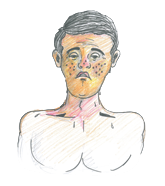
Individuals are either with a normal or thin physique, they tend to be irritable and short-tempered. They often present with an oily face that erupts acne or pimple frequently, a bitter or strength taste in the mouth, fatigue or heaviness of the body, uncompleted feeling after defecation or dry stools, yellow urine, excess vaginal discharges in female, wet scrota in male, and a yellow and greasy tongue coating. They are sensitive to humid and hot environments especially in late summer or early autumn. They are susceptible to skin problems and urinary difficulties.
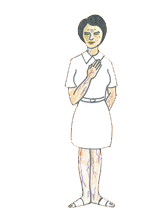
7. Blood stasis type
Individuals tend to be impatient and forgetful. They often present with a dull complexion, spots on the face, dark-red lips, dark circles under eyes, lusterless or rough skin, unknown bruise on the body surface, and varicose veins. They often feel uncomfortable in cold environments. They are susceptible to bleedings, painful conditions, and abnormal growths.
8. Qi stagnation type 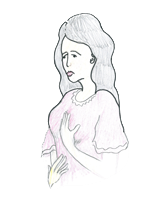
Individuals are mostly thin, and tend to be emotional unstable, melancholy or suspicious. They often present with a depressed mood, being nervous or anxious, timid, frequent sighing, and heart palpitations. They respond relatively poor to stressful situations, especially in winter and autumn and also rainy days. They are susceptible to insomnia, depression, anxiety disorder and breast lumps.
9. Special constitution type
